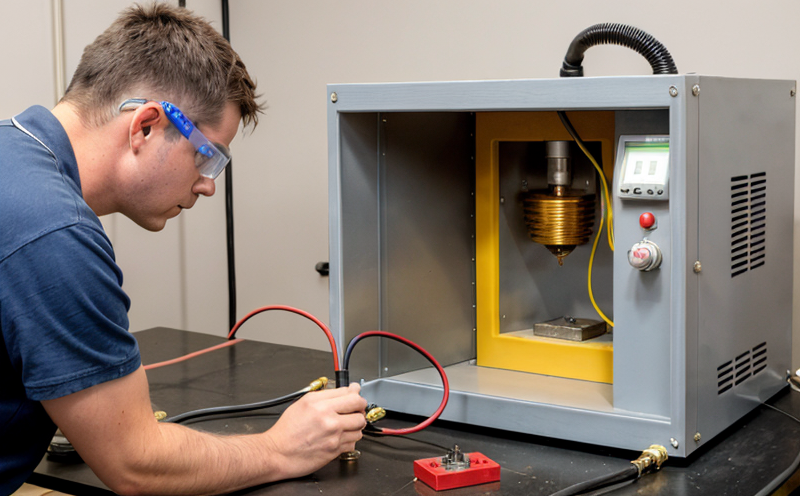ASTM B193 Resistivity of Metal Powders (Sintered)
The ASTM B193 standard test method is specifically designed to measure the electrical resistivity of metal powders and sintered articles. This test provides critical insights into the quality and performance of powdered metals, which are widely used in various industrial applications such as aerospace, electronics, and automotive sectors.
The resistivity of a material is an important factor influencing its suitability for certain manufacturing processes like electrical conduction, thermal management, or structural integrity. In the context of metal powders (sintered), knowing the resistivity helps manufacturers to optimize their production processes and ensure product quality meets stringent industry standards.
The ASTM B193 test involves subjecting a sample of sintered metal powder to an electric current under controlled conditions, measuring the voltage drop across it. The formula used for calculating resistivity is:
\[ \text{Resistivity} = \frac{\text{Voltage}}{\text{Current} \times \text{Cross-sectional Area}} \]This method allows laboratories to determine how well a metal powder will conduct electricity, which is essential for evaluating its performance in applications like electrical contacts or electrodes.
Preparation of the sample is critical. The ASTM B193 standard specifies that samples should be prepared according to the following steps:
- Select a representative sample from the batch.
- Weigh and measure the sample dimensions accurately.
- Sinter the sample under controlled conditions as per industry best practices.
The accuracy of these measurements directly impacts the test results. Proper sintering ensures that the metal powder is compacted into a solid form without compromising its electrical properties.
Instrumentation plays a crucial role in ASTM B193 testing. The setup typically includes:
- An accurate ohmmeter or multimeter for measuring voltage and current.
- A sample holder designed to maintain consistent pressure during the test.
- Environmental controls to ensure temperature stability, which can affect electrical properties.
The ASTM B193 standard also specifies acceptance criteria. A sample passes the test if its resistivity falls within a specified range defined by the industry or customer requirements. This ensures that only samples meeting these stringent standards are accepted for further processing or use in end products.
Understanding and adhering to the ASTM B193 standard is essential for industries relying on metal powders (sintered) for their electrical properties. Compliance with this standard not only enhances product reliability but also supports regulatory compliance, ensuring that products meet safety and performance standards.
Why Choose This Test
- Ensures product reliability
- Safeguards against potential failures due to electrical issues
- Supports regulatory compliance with international standards like ISO and ASTM
- It ensures consistent test results across different laboratories
- It allows for easy comparison of data between different batches or suppliers
- It supports continuous improvement in manufacturing processes by identifying areas needing optimization
ASTM B193 testing can provide significant competitive advantages, particularly for businesses operating within industries that demand high-quality metal powders. By adhering to this standard, companies demonstrate their commitment to quality and reliability, which can enhance customer trust and satisfaction.
The ability to consistently meet or exceed industry standards like ASTM B193 also sets a company apart in terms of innovation and technological leadership. This is especially true for R&D-driven organizations where continuous improvement and new product development are key priorities.





